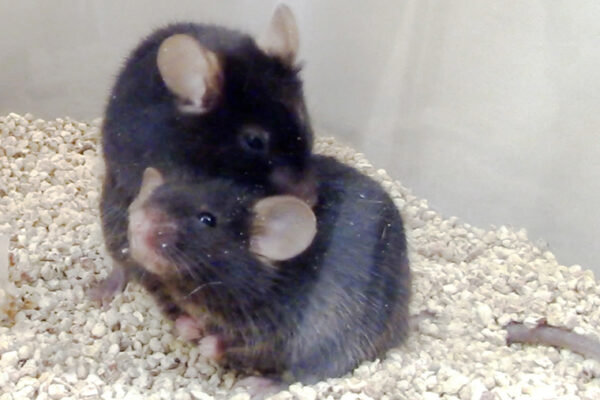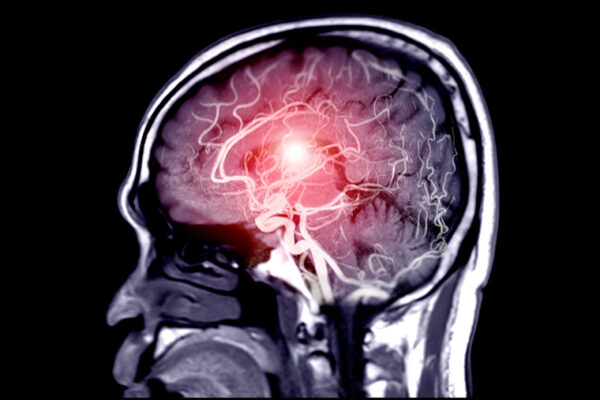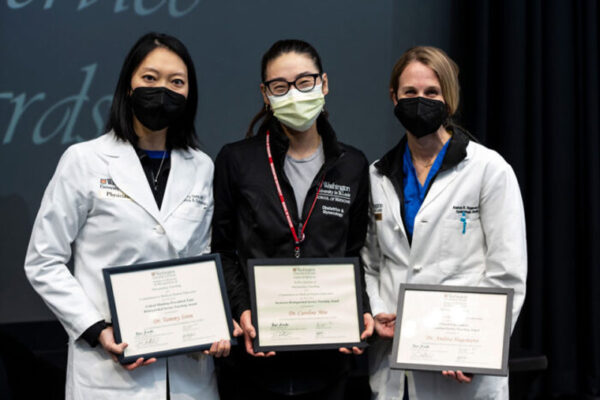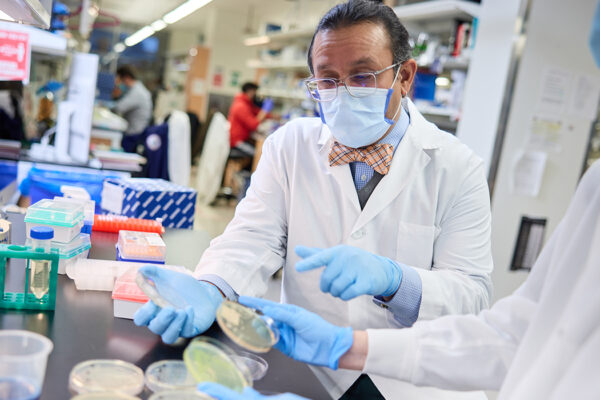Liu to explore allergies and infections
Qin Liu, associate professor at the School of Medicine, received a five-year $2.4 million grant from the National Institutes of Health (NIH) for research on respiratory allergies.
Neural pathway key to sensation of pleasant touch identified
Researchers from the Washington University Center for the Study of Itch and Sensory Disorders have identified a specific neuropeptide and a neural circuit that transmit pleasant touch from the skin to the brain. The findings eventually may help scientists better understand and treat disorders characterized by touch avoidance and impaired social development.
Synthetic data mimics real patient data, accurately models COVID-19 pandemic
Research led by the School of Medicine has demonstrated that analyzing synthetic data generated from real COVID-19 patients accurately replicates the results of the same analyses conducted on the real patient data. The school has been a national leader in deploying and evaluating technology for the production of synthetic data, which is key for data-sharing collaborations.
Researchers honored as outstanding mentors
The Office of Postdoctoral Affairs presented outstanding mentor awards to Alexxai Kravitz, James Stroud and John Russell at the recent annual Postdoc Symposium.
Oh to research molecular hematology
Stephen T. Oh, MD, PhD, associate professor of medicine and of pathology and immunology at the School of Medicine, received a five-year $2.46 million grant from the National Institutes of Health (NIH) for molecular hematology training.
Kornfeld receives Roscoe O. Brady Award
Stuart A. Kornfeld, MD, the David C. and Betty Farrell Distinguished Professor of Medicine at the School of Medicine, has received the 2022 Roscoe O. Brady Award for Innovation and Accomplishment from the WORLDSymposium, a research conference dedicated to lysosomal diseases.
Race of people given Alzheimer’s blood tests may affect interpretation of results
Three of four blood tests used to identify people in early stages of Alzheimer’s disease perform differently in Black individuals compared to white individuals, according to a new study from Washington University School of Medicine. Such differences may put Black patients at risk of misdiagnosis.
Calming overexcited neurons may protect brain after stroke
By scanning the genomes of nearly 6,000 stroke patients, School of Medicine scientists identified two genes associated with recovery. Both are involved in regulating neuronal excitability, suggesting that targeting overstimulated neurons may help promote recovery in the first 24 hours after stroke.
Aspiring physicians honor medical faculty, residents, staff
Recognizing excellence and dedication in medical education during a time of unprecedented challenges, students at Washington University School of Medicine recently honored faculty, residents and staff with Distinguished Service Teaching Awards for the 2020-21 academic year.
The next war we have to win
While the battle against SARS-CoV-2 rages on, Washington University researchers and clinicians are fighting a rearguard action against drug-resistant infections that years of overprescribing have turned deadly.
View More Stories







